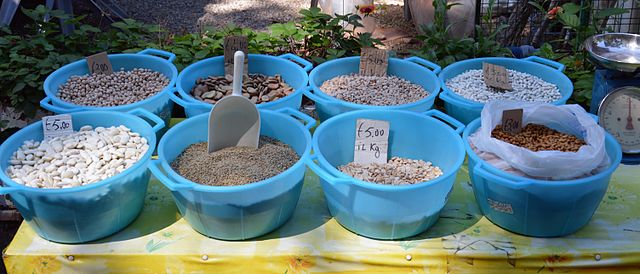SAN GIUSEPPE VESUVIANO (Naples) – Contributing to the development of a short supply chain on legumes grown in Campania “from producer to processor” using organic methods is the intent of Agria S.p.A.. The company, specializing in the selection and packaging of Select brand’s dried legumes, has honored consumer trust for more than 60 years by guaranteeing quality raw materials from a controlled supply chain. Today more than ever, it renews its commitment to healthy, organic and sustainable Italian agriculture, once again focusing on innovation.
It is from these purposes that the brand has participated in the research and experimentation project dubbed‘Legubiocer,’ which is financed by funds from the PSR 2014/2020 of the Campania Region, and coordinated by Dr. Massimo Zaccardelli of the Cereal and Industrial Crops (CREA) of Pontecagnano (in Salerno). The Operations Group consists of six partners, two of whom are public and four are private. The public partners are CREA, which participates with three research centers (Horticulture and Floriculture of Pontecagnano, Cerealicoltura and Industrial Crops of Foggia and Caserta, and Policies and Bioeconomy of Rome). There is also the Department of Agriculture of Portici (University of Naples “Federico II”). The private entities are two cereal farms, De Martini and Zampaglione, the company Bioagritest that deals with seed tanning and phytosanitary diagnosis, as well as the company Agria S.p.A., specialized in the selection and distribution of dried legumes.
In a broader sense, the objective of the project is to promote the spread of the cultivation of grain legumes-in particular chickpea and lentil– in the cereal areas of Campania. This will support the transfer of innovations in the cultivation technique such as the use of the new sower, “Seminbio,” minimum tillage, false sowing, seed dressing with beneficial microorganisms, and the use of new environmentally friendly molecules for disease control. At the same time, the scheme will help foster the development of region-wide supply chains focused on enhancing local quality production by reducing intermediaries and distances in the “food chain.”
In this regard, Aniello Alberti, general manager of Agria S.p.A., says, “During the two years of experimentation we have been involved, together with our partners, in the technological evaluation of chickpea and lentil grain and very interesting data have emerged. This data will be processed and made public at the end of the project to assess the economic impact of the innovations adopted and for the creation of a short supply chain in Campania, where we will be involved especially from the logistical point of view with the logistics of the product.”
Specifically, Agria S.p.A.’s Quality Control laboratory staff, during the two-year experiment, characterized the chickpea and lentil grains from the field trials from a technological, organoleptic and commodity point of view. In detail, the chickpea and lentil grain specimens were transferred from the field to the laboratory, which cleaned them and removed foreign bodies and dissimilar seeds in the samples, and then proceeded to grading, performing cooking tests and doing organoleptic evaluation.
The implementation of the project will see the introduction of innovations in agronomic techniques and the replacement of classic fodder crops such as wheat in cop rotation. These will be rotated with the more profitable grain legumes for human food use, particularly chickpea and lentil, which will lead to an increase in economic and environmental sustainability in the cereal-growing districts of Campania, besides rendering a physiological increase in organic production.
Source: Agricultura.it
